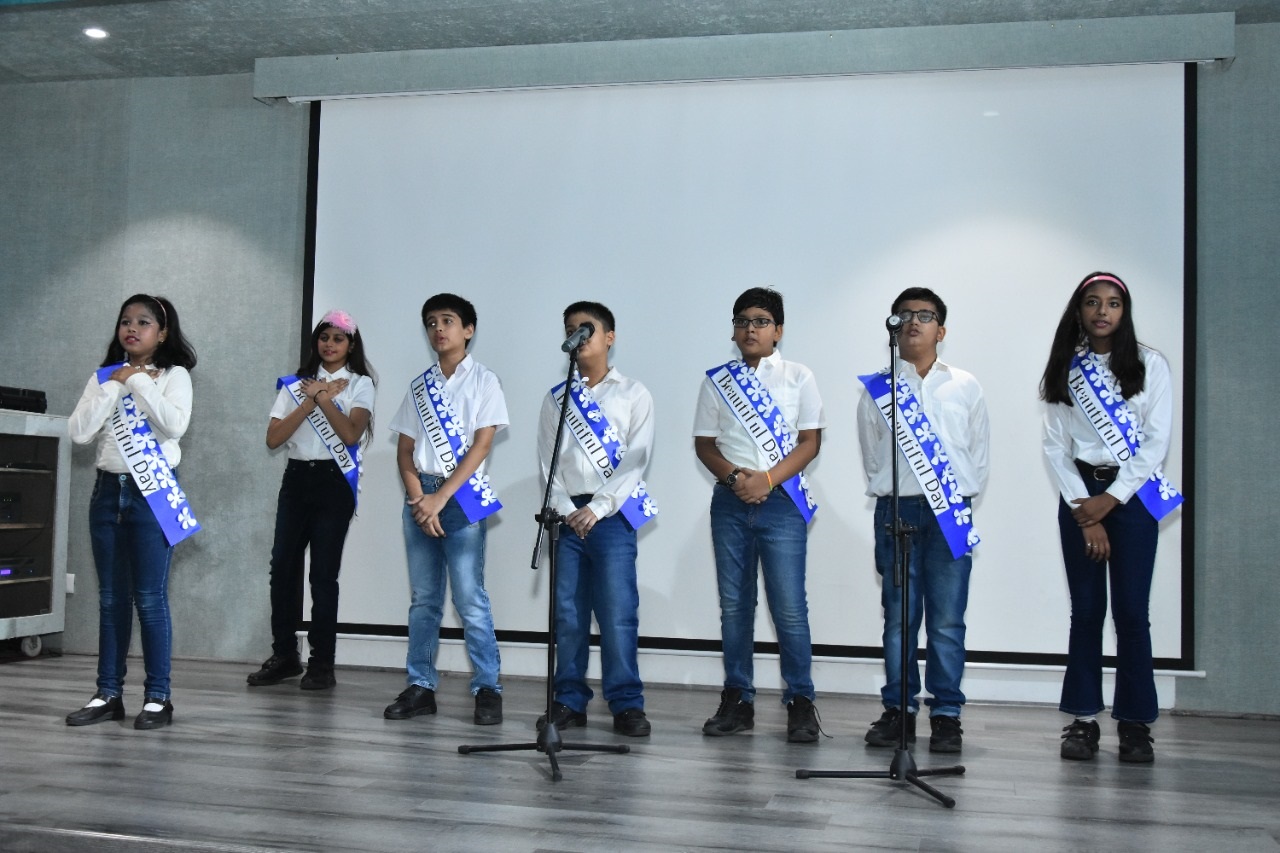Music and humans have always had a strong correlation. Haven’t you seen how newborn
babies respond to lullabies? Or haven’t you yourself ever experienced how listening to
relaxing tunes helps soothe the mind? That’s so because music has a very strong impact on
how we perceive and react to situations.
Studies have revealed that when children engage in music, they tend to show better brain
development and also perform better in academia. Not only does good music keep kids
entertained, but research suggests there’s a strong correlation between listening to music
and improved cognitive function, which also leads to enhanced learning and accelerated
growth.
We at LPS Global School, one of the top ten schools in Noida, are firm believers in the
virtues of music and have witnessed the power of music at our institution, with our young
learners getting exposed to music as a part of their curriculum. Every child at LPS Global
School gets an equal opportunity to unleash the power of music through our well-designed
vocal and instrumental music classes.
Today, through this article below, we will shed light on how indulging in music help boost
the overall cognitive growth in children. Let’s read on without any further ado.
Music and its effect on a child’s brain – What does research have to say?
Research reveals that exposing children to music from a young age can have positive effects
on their overall cognitive development. It can give a boost to their memory and language
skills and also evoke in them a heightened interest in learning.
In a study conducted by researchers at MIT, it was found that there are specific neural
pathways in the human brain that respond only to the presence of musical sounds. By
examining images of the auditory cortex, it was found that a group of neurons tucked away
in a furrow of the auditory cortex would fire in reaction to the song every time, regardless of
whether it’s Bach, bebop, banjo, or Beyoncé. This is a remarkable discovery in this direction
as it indicates that our brains include a specific region that is highly specialized for
processing information in the musical realm.
As purported by the late researcher Oliver Sacks, MRI scans show that musicians’ brains look
and work differently (and very effectively) than the minds of people who are not actively
engaged with music. Listening to music causes musicians’ brains to light up more brightly
and actively than those of non-musicians. As a musician performs, the neurons in their
brains light up and speed up even more.
This means that when it comes to language, logical reasoning, sequencing, and
mathematical processes, a musician is more likely to fare better than a non-musician
without an iota of doubt. That’s primarily because performing music is analogous to cross-
circuit training in the brain, which strengthens and densifies neural networks.
Music – A strong means of expression
Music is known to possess the power to evoke various emotions and spark a great deal of
imagination and inspiration in its listeners. It is an inherently nonverbal means of
expression, relying on chords and notes rather than syntax or semantics to communicate its
meaning.
Music does not reflect ideas through definition or reference like spoken language does. So,
it is up to the listener to interpret the feelings that the sounds convey. That’s why listening
attentively and developing strong analytical skills are key when learning how to appreciate
music. It allows to better grasp the messages that lie beneath the simple surface of strings,
piano keys, and drums.
Benefits of music in child development
Some of the notable benefits of music in the cognitive health and development of children
are –
Helps improve fine motor skills, such as dexterity and hand-eye coordination, in
children.
Helps with language abilities in terms of speaking and comprehension
Boosts the management of emotions and empathy
Instills self-confidence, self-esteem, and teamwork
Builds focus and concentration power
Additionally, listening to music can also boost a child’s mood, reduce stress levels, and even
benefit their mental health by reducing the risk of depression and anxiety. Thus, it is
important that children are exposed to the world of music at a young age itself.
Conclusion
As you can see, there is a definite connection between music and cognitive development in
children. Being one of the top ten schools in Noida, we at LPS Global School firmly believe
that music is a language that can help abolish the difference in culture and help overcome
all sorts of communication barriers. It can change people for the better and help create a
more just world. We at our school have seen how engaging in music helps bring a significant
improvement in the overall growth of our students. Be it vocal or instrumental music, each
form has a positive impact on the cognitive development of children.
To enable our students to aptly experience and benefit from the power of music, we at LPS
Global School bring together the benefits of both occidental and oriental music culture for
them. With our pupils wholeheartedly engaging in various forms of music all year round, we
are certain their development will remain on the right track.

